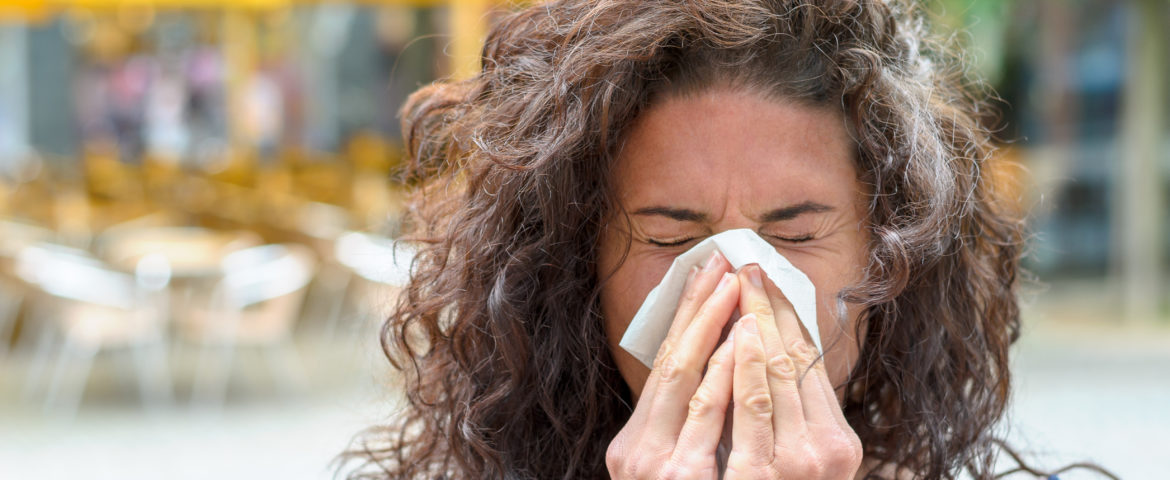According to the American Academy of Allergy, Asthma and Immunology about 7.8% of adults in the U.S. have hay fever, which is most often caused by pollen. If you suffer from seasonal allergies, you know just how miserable the constant sneezing, coughing and itching can be.
Once you and your care provider have determined that it’s allergies you’re experiencing (and not something more serious), you may look for ways to help make your symptoms a little more bearable. While we can’t stop the pollen, we can drop some knowledge on how to deal with seasonal allergies and prevent some of the worst symptoms.
Reduce your exposure to allergy triggers
The best thing you can do for your seasonal allergies is reduce your exposure to allergy triggers. Common allergy culprits include tree and grass pollen and mold. Here are a few ways to avoid triggering your symptoms when it comes to those annoying allergens:
- Stay inside on dry, windy days when pollen is more likely to be traveling through the air. Likewise, pollen counts tend to be lower after a good rain.
- During peak allergy season, avoid tasks that kick up pollen like yardwork and gardening. Focus on other chores while someone with a more resistant immune system mows the lawn or weeds those flowerbeds.
- If you can’t or don’t want to avoid yardwork, you can purchase and wear a pollen mask to keep you from inhaling irritants.
- Take a shower after you’ve spent time outside to rinse allergens out of your hair and off your body. Change out of your outdoor clothes and wash them immediately to avoid spreading pollen throughout the house.
Track pollen counts
Some days are worse than others when it comes to allergies. Check the news or a trusted weather app for pollen forecasts and pollen levels so you can plan activities around times that are better for your allergies.
- When pollen counts are high, close windows and doors at night to avoid breathing in irritants while you sleep.
- If you take allergy medication, start taking it before the pollen counts are forecasted to climb so you can prevent your symptoms from starting in the first place.
- Turn on the AC when pollen counts are high and change out your filters
- Vacuum daily when pollen counts are higher. Allergy experts recommend using a vacuum with a HEPA filter.
Seek treatment
Luckily, for allergy sufferers, there are many remedies available to ease allergy symptoms.
- Oral antihistamines: Antihistamines help relieve common symptoms like watery eyes, sneezing and itching—and they’re available over-the-counter. Oral antihistamines can also make you drowsy, so keep that in mind when taking these medications.
- Decongestants: If your allergy symptoms are more along the lines of nasal stuffiness and congestion, a decongestant might be the right option. Decongestants are available in both oral and nasal form, but note that nasal decongestants are not recommended for long-term daily use.
- Nasal rinse. Rinsing your nasal passageways with a saline solution is a great way to reduce nasal symptoms like congestion and a runny nose. Look for a nasal rinse bottle at your pharmacy and only use distilled, sterile water.
- Allergy shots: If your allergy symptoms are severe or too bothersome for over-the-counter treatment, talk to your health care provider about treatments like allergy shots (allergen immunotherapy). Allergy shots involve regular injections of small amounts of your allergy triggers. Over time, these injections reduce and can even eliminate your immune system’s reaction to allergens.
You don’t have to suffer with a stuffy nose this spring; take control of your allergies and say goodbye to seasonal symptoms.


